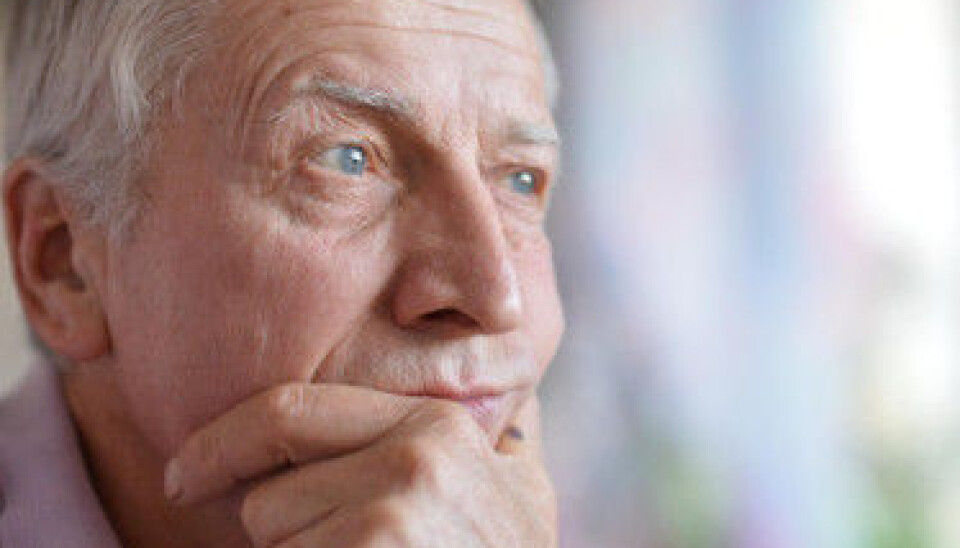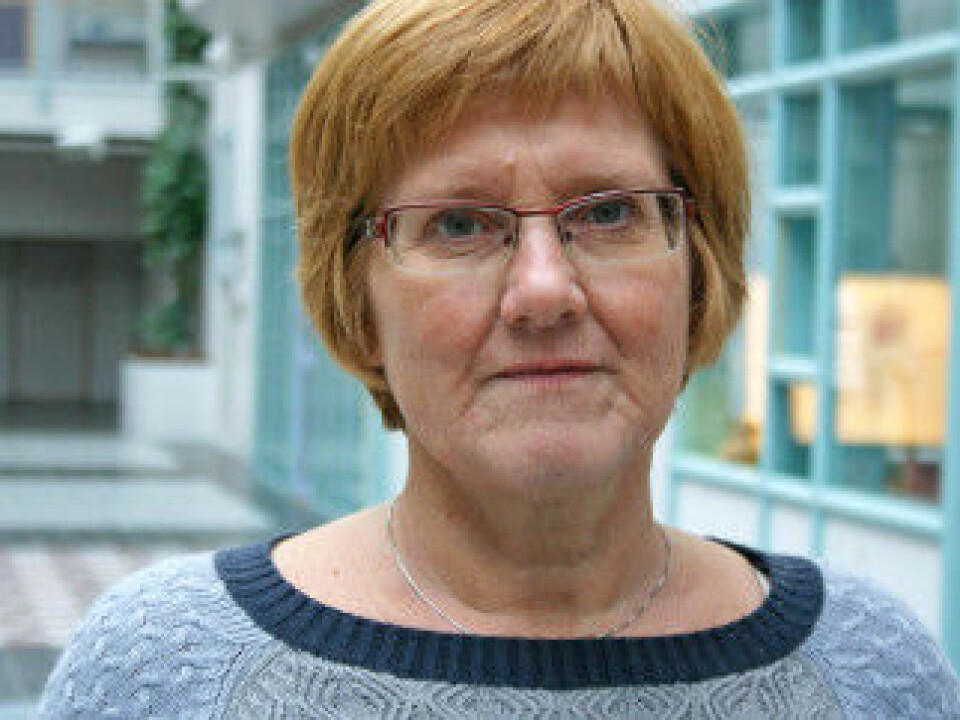An article from KILDEN Information and News About Gender Research in Norway

Prostate cancer is a test of manhood
The implications of prostate cancer get men thinking about what it means to be a man.
Denne artikkelen er over ti år gammel og kan inneholde utdatert informasjon.
“I’m no longer a man. I’m all dried up,” said one man. “You are less of a man,” concluded another. A third one found comfort in the lyrics of a popular song: “I’m just a man who does the best he can”.
Bente Ervik’s doctoral thesis Everyday life with prostate cancer shows that sexuality and ideas about masculinity are closely connected.
Too much focus on impotence
Ervik’s research is based on in-depth interviews with 13 men aged 58–83 and nine spouses aged 52–68. The spouses were not married to any of the 13 men in the study. This minimised the danger of revealing sensitive information, which allowed the women to speak freely.
Several of the men felt that the health system focused a little too much on impotence as a possible side effect. In the beginning they had enough to deal with just digesting the fact that they had cancer, a frightening and potentially terminal disease.

“They are given advice about what they can do, about Viagra, about sex with their partners. It’s fine to get information about this, but the person who is sick should not feel pressured. There should not be too much focus on getting an erection,” says Ervik.
In general, the older men were able to accept that their sex lives had changed and that it was better to extend their lives with treatment than to have a functioning penis. However, one of the younger men broke up with his girlfriend after he became impotent.
“Sexuality was more important for the youngest men in my sample, those around 60 years old. Impotence was a huge problem for them,” explains Ervik.
Fat, tired and apathetic
The men interviewed by Ervik were treated with hormones, not to cure the disease but to extend their lives. The hormones decrease the production of testosterone, which can cause major side effects.
“You may become tired, gain weight, and lose initiative. It’s a little like women going through menopause,” explains Ervik.
For the informants, being a man had to do with physical activity and having a strong body, among other things. While on hormones, they had to adjust the physical aspects of their lives.
One of the men used to be an active outdoorsman and mountain climber. Now he picks berries instead, and is very satisfied with that.
“They manage to live good lives with prostate cancer and the side effects, but it has an impact on how they live. They live in a more cautious, thoughtful way,” says Ervik.
Men with incontinence
Many of the men also suffer from incontinence. While several research studies have explored the topic of impotence, little research has been conducted on men who are incontinent and need to wear nappies.
One of the men interviewed by Ervik used to bring a glass jar with him when he was out driving so he could “relieve himself at a steady pace”. None of the men talked about nappies.
“It’s possible that they did not have incontinence and did not use nappies,” says Ervik, and points out that the number of side effects are decreasing due to continually better treatments and operations.
The women she interviewed, however, said that their spouses used nappies. They told about difficult situations in the men’s daily lives with nappies and that they had to joke about it to lessen its sting.
Talking about it
The men talked mainly with their wives about the disease, except for one man who had not told his wife.
They could also talk to their sons while doing something together, but it was difficult to talk to their daughters. Having to say “dad is sick” had an impact on how they thought about themselves as fathers.
The men also felt that it is easier for women to open up than for men. Several of the wives said they had to push their husbands into telling them how they were doing.
“The men usually said that there was not much to tell, but I found them to be very open and talkative with me during the interviews,” says Ervik.
“One man said that men can be cool on the outside, but a raging storm on the inside. These are courageous men who are working hard to cope with their illness. But there are issues there that they may not always get to talk about and express, which the health system does not take notice of.”
Dependent on their spouses
The men said that their wives were their most important source of support. The wives said that their husbands had become dependent on them.
Both the men and the spouses were concerned about sparing each other, but over time the women became tired of all the focus on their husband’s cancer. They lost themselves in the man’s illness.
It was also important for the women not to reveal sensitive information about their husbands. The spouses protected their husbands, but they found it difficult to be the only one who knew about the disease.
“Often people knew that the man was sick, but not what kind of illness it was,” says Ervik.
Difficult sex life
With regard to the side effects of the men’s illness, the spouses were often stoic at the beginning of the interviews. Everything was fine; nothing to talk about.
“After awhile it became clear that some of them thought it was sad that their sex life had ended earlier than anticipated,” says Ervik.
“A woman who said in the interview that it was fine to have less sex called back the next day and said ‘what I said wasn’t true, it’s awful’. It does something to the relationship. By the same token, they would not tell this to their husbands. It was important for them to protect their husbands’ masculinity.”
However, it was not only problematic to be married to a man with prostate cancer. Some of the women found that the disease had brought them closer together.
Greater attention
When Ervik conducted the interviews, there was little openness about the disease in the public sphere. This has changed dramatically since the Norwegian Prostate Cancer Association (PROFO) has become more active.
“The men think it’s important that more facts and knowledge about the disease is brought to light,” says Ervik.
“There is something about where the disease is located that leads to taboo and stigma. It must be given its rightful place without making these men and their sexuality an object of pity.”
Translated by: Connie Stultz

































